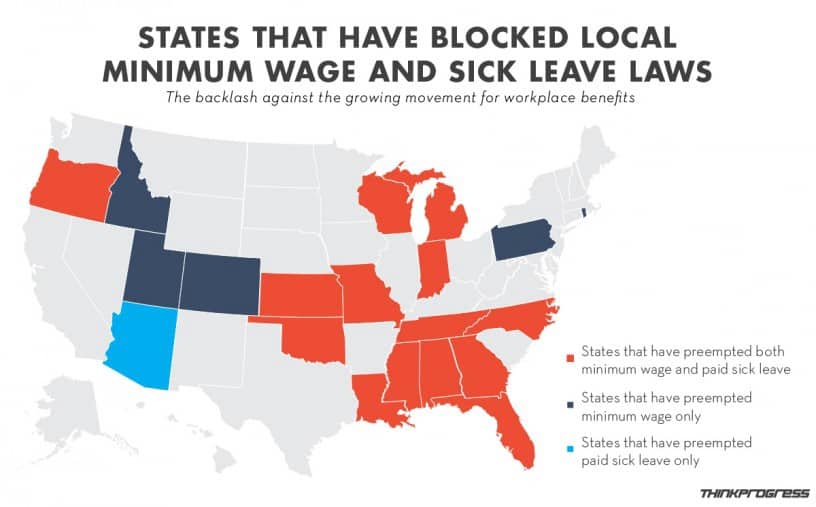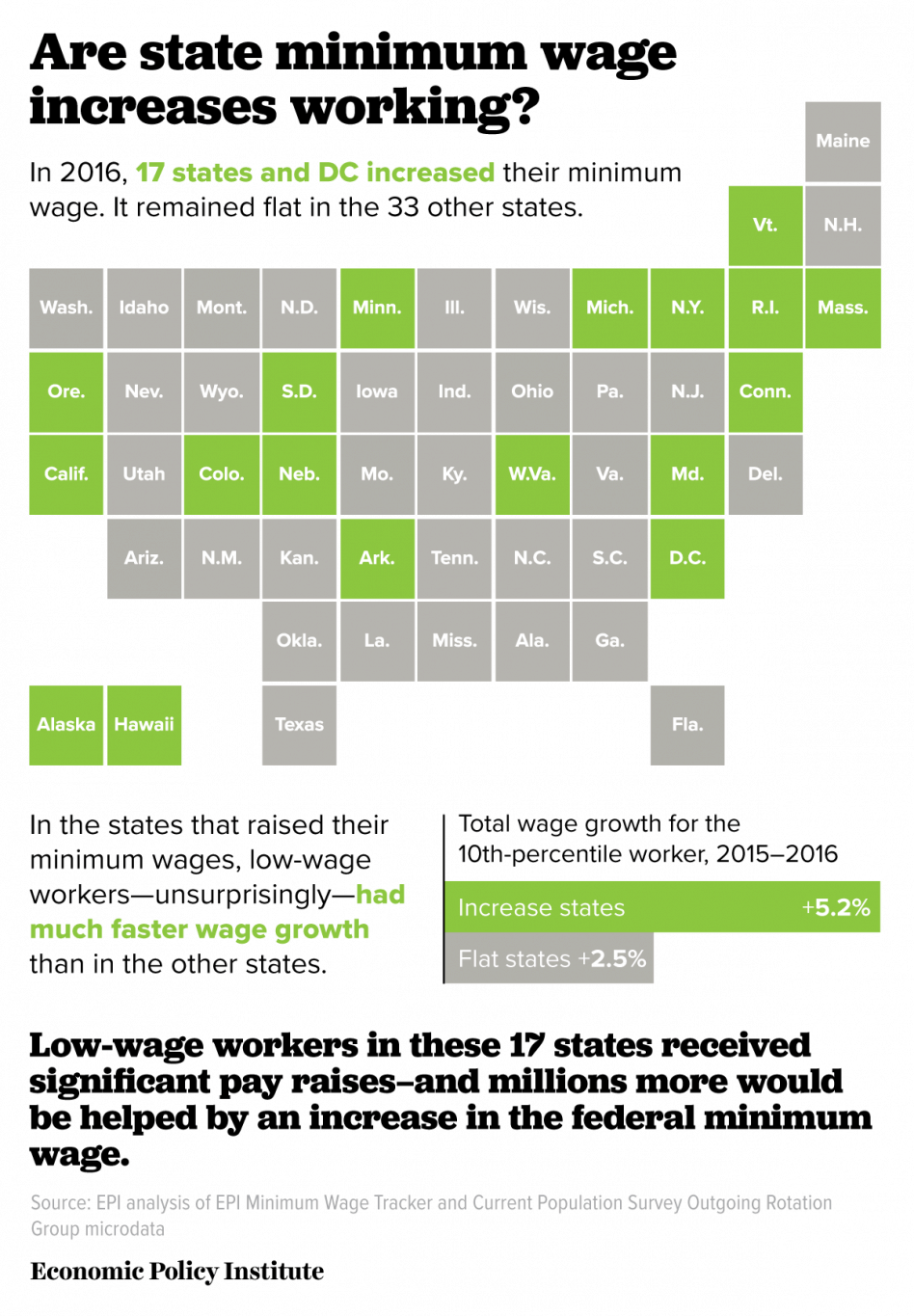
Last year Maine voters approved an increase in the minimum wage. After this jobs and wages surged. So business groups are trying to do something about it.
And not just in Maine.
Maine’s Job “Surge”
Last year voters approved a Maine ballot initiative raising the state’s minimum wage to $12 by 2020. The ballot initiative received 56 percent support. In January the first phase-in increase to $9 took effect. The Maine Beacon explained what happened:
Average hourly earnings for private-sector Maine workers increased to $22.70 an hour and total employment increased to an all-time high, with a gain of more than 4,000 seasonally-adjusted jobs from December.
Significant employment gains were seen among Maine’s restaurants and hotels, with the accommodation and food service sector gaining 700 jobs.
So instead of the predicted disaster, with employers laying off workers and some going out of business, it turns out that raising the minimum wage was a good thing for the employees – and the employers – who saw a surge in customers coming through the door so they had to hire people to handle the new business.
Go figure.
Legislature Dials Back
In response to this terrible violation of corporate/conservative ideology, which says you can’t raise the minimum wage because higher pay hurts employees and employers, business groups in Maine “are actively working to undermine the results of the last election.”
Captured legislators have introduced 16 bills that would roll back the wage increases, especially on “tipped workers.” This is happening even though it was Maine’s voters who decided to raise the wage. The Maine Beacon covers this, too:
16 bills seek to roll back various aspects of the increase, and eight Democrats have signed on to attempts to cut the subminimum wage for tipped workers, which went from $3.75 to $5 an hour in January and is slated to gradually increase over the next decade under the current law until it reaches the full minimum wage.
The restaurant industry lobby has fought hard against the minimum wage law, including spreading misinformation and fear about the effects of tipped wage increases on rates of tipping. In other states that have higher tipped wages, restaurant servers make the same or higher tips as Maine, but can also depend on a more steady base wage from their employer.
Some business owners believe that paying employees takes money out of their own pockets. Our country fought and won a civil war over this mentality, but the ideology persists.
Not Just Maine
Attacks on voters and the idea of a minimum wage are not just happening in Maine, but across the country.
In a number of cities, counties and states, voters have approved a higher minimum wage, and these decisions are also now under attack. Amber Phillips reports in the Washington Post that many of these gains, which were won by ballot initiatives, are in danger.
“Just because the voters have an opinion doesn’t make it constitutional,” said Patrick Connor, director of the Washington branch of the National Federation of Independent Business.
Several states are also passing “preemption” laws keeping cities from raising their minimum wages. Christine Owens of the National Employment Law Project writes about this:
As public support for raising pay for low-wage workers reaches a fever pitch, and as the momentum of worker movements like the Fight for $15 becomes harder and harder to stop, corporate lobbyists have begun resorting to increasingly underhanded maneuvers to keep wages down.
Their go-to move in recent years: pushing bills through state legislatures that “preempt” – essentially prohibit – city and county governments from passing minimum wage laws higher than the state levels – which in many states remain low due to political gridlock.
According to Bryce Covert and Evan Popp at Think Progress, 19 states have passed laws to keep local governments from raising the minimum wage above the state level.

The wage-increase opponents are making it clear they don’t care what the voters want.
Higher Wages Mean More Jobs
There are two competing narratives about minimum wages:
1) Raising the minimum wage forces businesses to lay people off because they are “too expensive.”
2) Raising the minimum wage means more people have more money to spend, which means businesses have more customers with more money, forcing employers to hire more people to meet the demand.
Fortunately there are ways to test both theories. If you look at what has happened when the minimum wage is increased, what you find is that raising the minimum wage does not cause job loss. It does, of course, cause a raise in the minimum wage, which “raises the bar” causing those above the minimum wage to also get raises.
The “too expensive” theory assumes that employers have people sitting around reading newspapers, and can just lay them off. But the point of hiring people is to have them do things that need to be done, and which make money for the employer.
So when wages go up, businesses have more customers with more money to spend. As in Maine, the actual results of minimum wage increases show that this is what happens.
The Economic Policy Institute provides a graphic showing these wage gains:
Opposing minimum wage increases is more than just an attack on democracy and working people, it is an attack on common sense. It cuts off the employer’s nose to spite the employer’s workers.
This post originally appeared on ourfuture.org on March 30, 2017. Reprinted with Permission.
Dave Johnson has more than 20 years of technology industry experience. His earlier career included technical positions, including video game design at Atari and Imagic. He was a pioneer in design and development of productivity and educational applications of personal computers. More recently he helped co-found a company developing desktop systems to validate carbon trading in the US.





